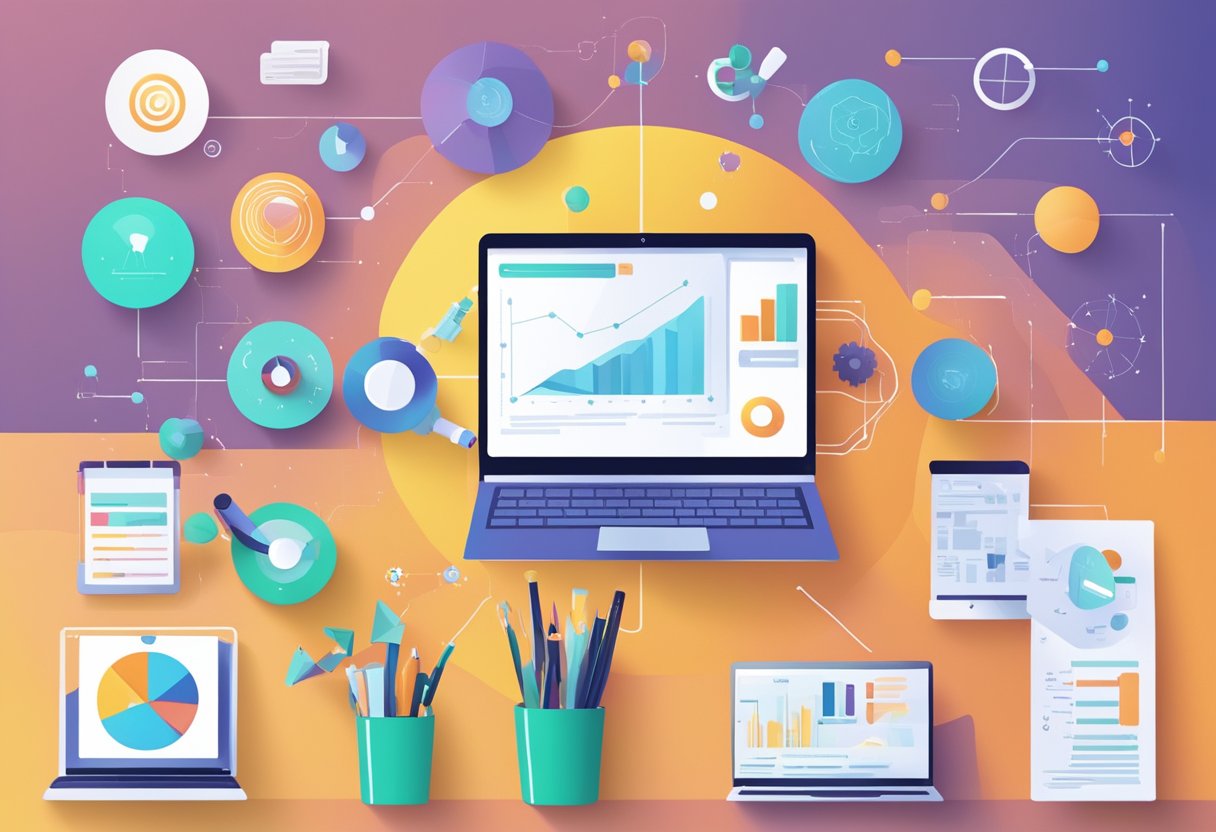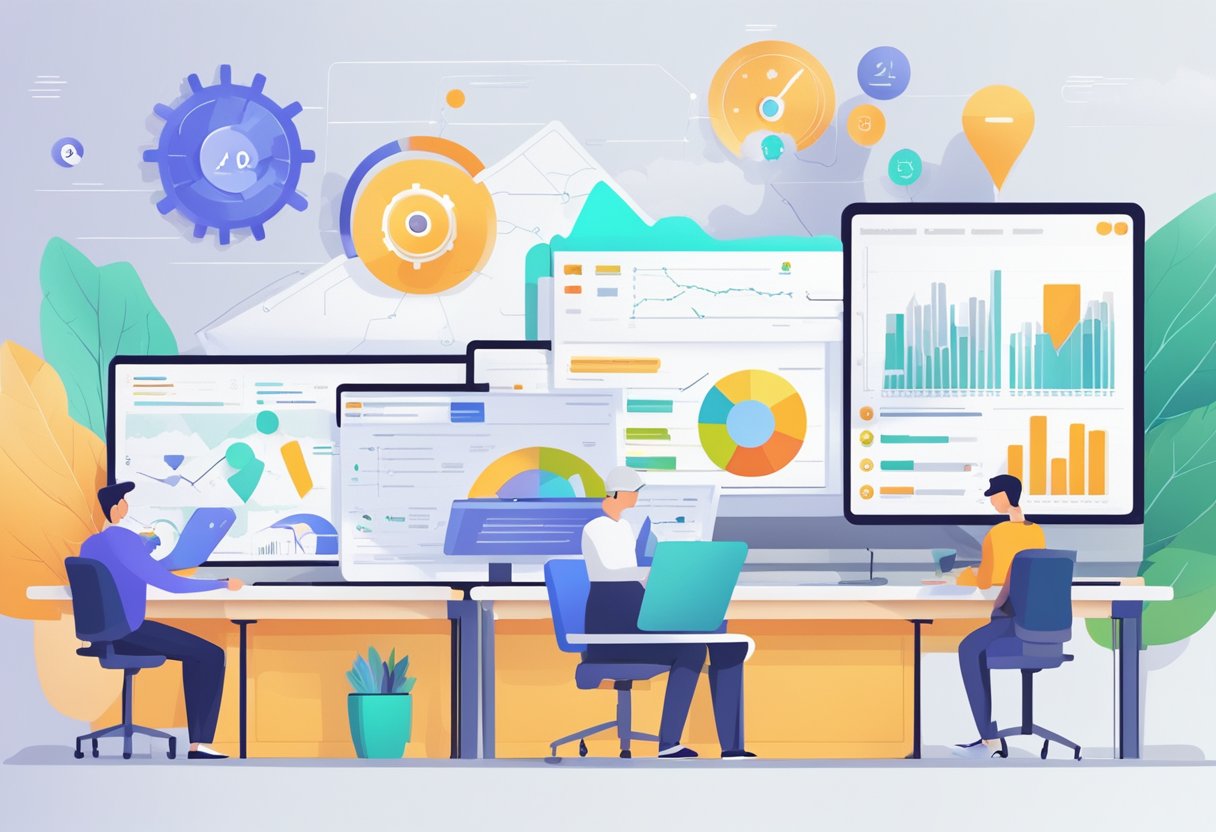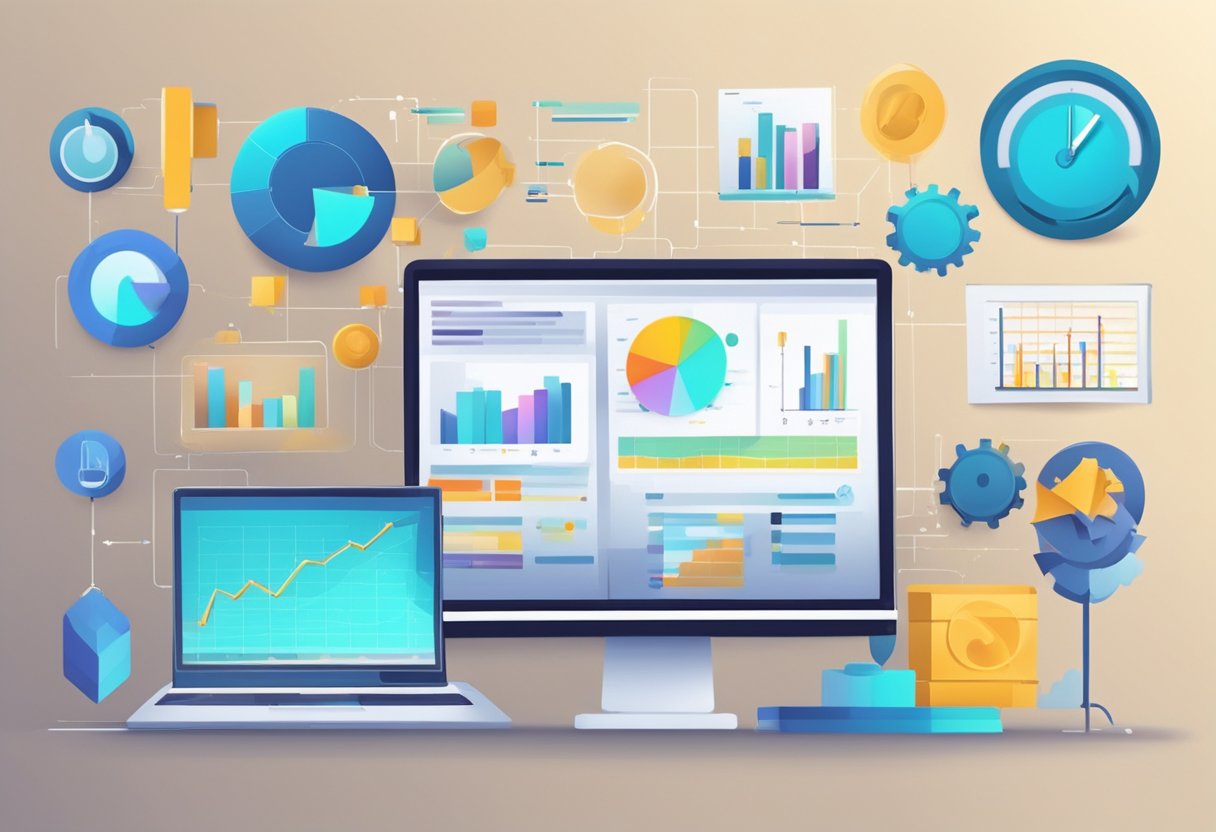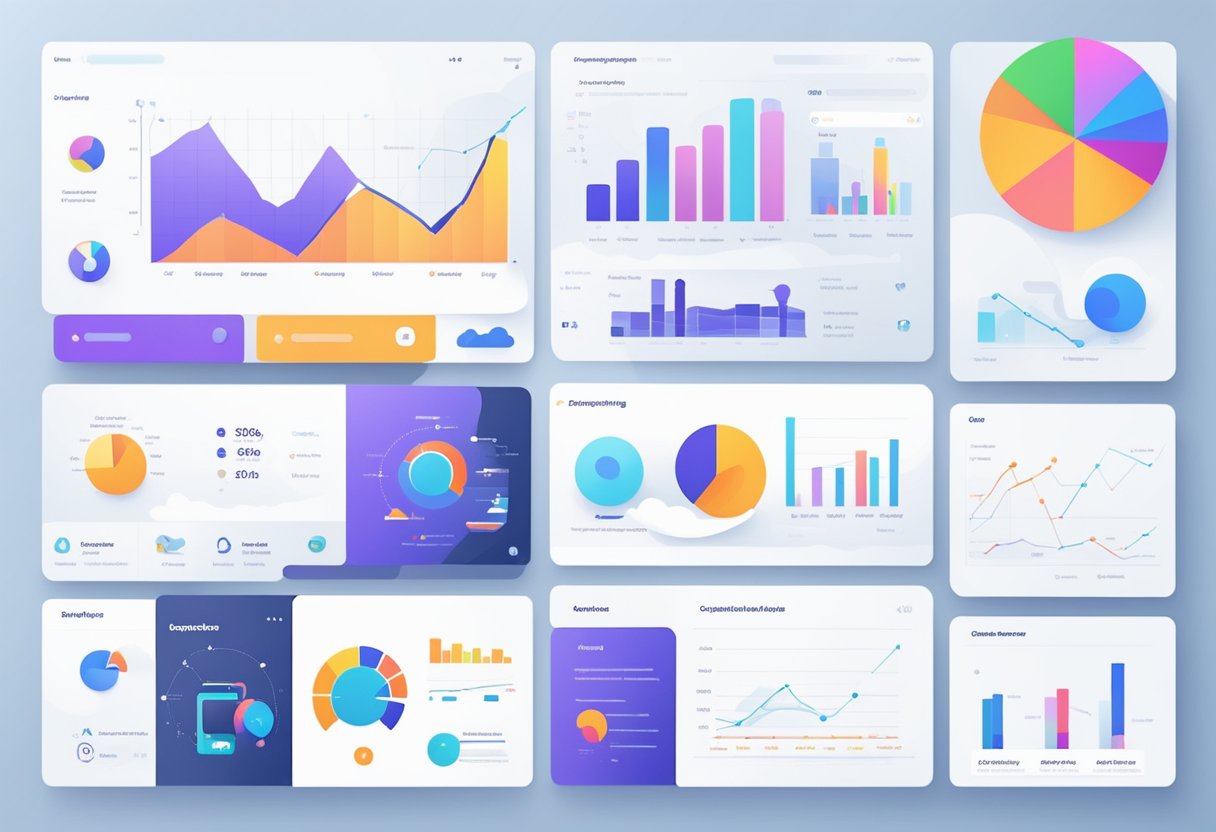AI-powered tools are revolutionizing the way modern marketers conduct competitive analysis and develop effective marketing strategies.
With the help of artificial intelligence, businesses can now gain valuable insights into their competitors’ activities, strengths, weaknesses, and market positioning in a matter of minutes, rather than days or weeks.
These insights can then be used to create highly personalized outreach strategies that drive business growth and generate higher ROI.
One of the key benefits of using AI-powered tools for competitive analysis is that they can quickly analyze vast amounts of data, including competitors’ content, social media activity, email campaigns, and more.
This allows marketers to identify trends, patterns, and opportunities that would be difficult or impossible to detect manually.
Additionally, AI-powered tools can help businesses optimize their own content and marketing campaigns by analyzing customer behavior, preferences, and engagement metrics.
Key Takeaways
- AI-powered tools are transforming the way modern marketers conduct competitive analysis and develop effective marketing strategies.
- These tools can quickly analyze vast amounts of data, identify trends and opportunities, and optimize content and marketing campaigns.
- The use of AI-powered tools is essential for businesses looking to gain a competitive edge and drive growth in today’s marketplace.
The Role of AI in Modern Marketing

Understanding AI and Machine Learning
Artificial Intelligence (AI) and Machine Learning (ML) are two technologies that are transforming the marketing industry.
AI refers to the development of computer systems that can perform tasks that would normally require human intelligence.
Machine learning is a subset of AI that involves the use of algorithms to analyze data, learn from it, and make predictions.
AI-powered tools have the ability to analyze vast amounts of data in real-time, which makes them ideal for competitive marketing analysis.
They can help businesses to identify trends, patterns, and insights that would be difficult or impossible to detect using traditional methods.
AI’s Impact on Marketing Strategies
AI is changing the game for modern marketing strategies. It is enabling businesses to create more personalized and targeted marketing campaigns that are more effective at engaging customers.
AI-powered tools can analyze customer data to identify their preferences, behaviors, and interests, which can be used to create highly targeted marketing campaigns.
One of the primary ways that AI is being used in marketing is through content creation.
AI-powered tools can generate ideas and outlines for content, which can save marketers a significant amount of time and effort.
AI-powered chatbots are also becoming increasingly popular, as they can provide customers with personalized assistance and support.
In addition, AI-powered tools can help businesses to optimize their marketing campaigns by analyzing data and making predictions about customer behavior.
This can help businesses to identify areas where they can improve their marketing efforts and make more informed decisions about their marketing strategies.
Competitive Analysis with AI-Powered Tools

Competitive analysis is a crucial aspect of modern marketing. By monitoring competitors, businesses can stay ahead of the curve and make strategic decisions that help them stay competitive.
In recent years, AI-powered tools have emerged as a powerful way to gain insights into competitors and develop effective marketing strategies.
Real-Time Competitor Monitoring
One of the key benefits of AI-powered tools for competitive analysis is real-time monitoring.
With these tools, businesses can stay up-to-date with the latest developments in their industry and respond quickly to changes in the competitive landscape.
For example, tools like Crayon can monitor vast amounts of online data, including competitor websites, reviews forums, social media, and more.
Its AI algorithms can rapidly identify changes in competitor messaging, product updates, or even pricing changes.
Predictive Analytics for Strategic Planning
Another important benefit of AI-powered tools is predictive analytics.
By analyzing data from competitors and other sources, these tools can help businesses make strategic decisions that give them a competitive edge.
For example, tools like Smartwriter can aid competitive analysis by analyzing competitors’ content and providing valuable insights into their writing style, tone, and keywords used.
This information can be used to develop personalized outreach strategies that are more effective than generic marketing campaigns.
AI-Driven Content Creation and Optimization

Automated Content Generation
AI-powered content creation tools are revolutionizing the way businesses produce content.
These tools can generate engaging, well-structured copy for various marketing channels, including social media, email marketing, and blog posts.
By automating the content generation process, businesses can save time and resources while still producing high-quality content that resonates with their target audience.
One of the key benefits of using AI-powered content creation tools is the ability to create multiple variations of short-form copy, including headlines, quotes for graphics, and spotlight text.
These tools can turn a single piece of content into numerous social posts and suggest ad copy, streamlining the content creation process.
SEO and Content Optimization
In addition to content creation, AI-powered tools can also automate on-page SEO tasks.
These tools can scan a website’s content to ensure that it aligns with best practices for keyword density, meta tags, and header tags.
By crawling through vast datasets, AI can identify trending keywords, long-tail phrases, and semantic variations that are relevant to a business’s niche.
AI tools also allow businesses to conduct deeper content research and analyze vast amounts of data.
By combining AI with human oversight, businesses can structure their content the right way and adjust it to their customers’ expectations.
This can lead to higher search engine rankings, increased website traffic, and ultimately, more conversions.
Leveraging Data for Marketing Insights

In today’s data-driven marketing landscape, businesses can gain a competitive edge by leveraging AI-powered tools for in-depth competitive marketing analysis and strategy development.
By harnessing the power of AI, businesses can transform raw data into actionable insights that drive smarter marketing decisions.
Data Analysis Techniques
The first step in leveraging AI-powered marketing is the aggregation and purification of data.
AI tools excel in automating these labor-intensive processes, ensuring a clean dataset for analysis, which is crucial for transforming data into insights.
Once the data is collected, businesses can use a variety of data analysis techniques to extract meaningful insights. These techniques include:
- Descriptive Analysis: This technique involves analyzing historical data to understand what happened in the past. It can help businesses identify trends and patterns in customer behavior, which can be used to inform marketing strategies.
- Predictive Analysis: This technique involves using statistical models to predict future outcomes based on historical data. It can help businesses identify potential opportunities and threats in the market, allowing them to adjust their marketing strategies accordingly.
- Prescriptive Analysis: This technique involves using machine learning algorithms to recommend actions based on data analysis. It can help businesses optimize their marketing efforts by identifying the most effective channels and messaging for specific customer segments.
Customer Behavior and Personalization
AI-powered tools can also help businesses gain deeper insights into customer behavior, which can be used to deliver personalized marketing experiences.
By analyzing customer data, businesses can identify patterns in behavior and preferences, allowing them to tailor their marketing messages to individual customers.
This can help improve customer engagement and loyalty, ultimately driving revenue growth.
Effective data management is crucial for leveraging data for marketing insights.
Businesses must ensure that data is collected, stored, and analyzed in a secure and compliant manner to protect customer privacy and maintain data integrity.
By adopting AI-powered tools for data management and analysis, businesses can gain a competitive edge in the data-driven marketing landscape.
Social Media and Email Marketing Automation

With the increasing amount of data available, businesses are turning to AI-powered tools to gain insights into their competitors’ marketing strategies. Social media and email marketing automation are two areas where AI can provide significant benefits.
Engaging Customers on Social Platforms
Social media platforms like Facebook and Instagram are powerful tools for reaching customers. However, managing multiple accounts and creating engaging content for each platform can be time-consuming.
AI-powered tools can help automate this process, allowing businesses to create and schedule posts across multiple platforms simultaneously.
One such tool is Vista Social, which allows businesses to connect multiple social media channels and schedule posts in advance.
Audiense is another AI-powered tool that provides intelligent social listening on Twitter, allowing businesses to monitor conversations and identify trends in real-time.
Efficiency in Email Marketing Campaigns
Email marketing is another area where AI-powered tools can provide significant benefits.
By automating tasks such as list segmentation and personalized content creation, businesses can save time and improve the effectiveness of their campaigns.
Predis.ai is one such tool that can generate carousels and videos for email campaigns, while Emplifi can help businesses discover high-impact influencers to target with their campaigns.
Additionally, Customers.ai is a multi-platform chatbot creator that enables businesses to easily manage their marketing chat content with ease.
Enhancing Decision-Making with AI

Artificial Intelligence (AI) has become an integral part of the business world. It has revolutionized the way businesses operate, especially in the field of marketing.
AI-powered tools are being used to analyze market trends and develop strategies that can give businesses an edge over their competitors.
AI Assistants and Decision Support
AI assistants are becoming increasingly popular in the business world.
They can help decision-makers by providing them with relevant information and insights that can guide their decisions.
These assistants use algorithms to analyze data and provide recommendations that can help businesses make informed decisions.
AI assistants can also help businesses automate tasks that are repetitive and time-consuming.
This can free up time for decision-makers to focus on more strategic tasks.
With the help of AI assistants, businesses can make decisions faster and more accurately.
Market Trend Analysis for Informed Decisions
Market trend analysis is a crucial part of developing a marketing strategy. AI-powered tools can help businesses analyze market trends and make informed decisions.
These tools use algorithms to analyze data from various sources, such as social media, news articles, and customer reviews.
AI-powered tools can help businesses identify emerging trends and predict future market trends. This can help businesses stay ahead of their competitors and develop strategies that can give them a competitive edge.
With the help of AI-powered tools, businesses can make data-driven decisions that are based on accurate and up-to-date information.
AI and the Customer Experience

AI-powered tools are revolutionizing the way businesses interact with their customers. By leveraging AI, companies can provide personalized experiences that enhance customer satisfaction and engagement.
This section will explore the benefits of using AI for customer experience, with a focus on chatbots and AI marketing tools.
Chatbots and AI for Customer Engagement
Chatbots are AI-powered tools that can communicate with customers in a natural language format. They can be used to answer customer queries, provide product recommendations, and even complete transactions.
Chatbots are available 24/7, which means that customers can get help whenever they need it, without having to wait for a human agent.
Chatbots can also be used to collect data about customer preferences and behavior. This data can be used to personalize the customer experience, by providing recommendations that are tailored to the customer’s interests.
In addition, chatbots can be programmed to identify and address customer pain points, which can improve customer satisfaction.
Personalized Experiences and Customer Satisfaction
AI marketing tools can be used to create personalized experiences that enhance customer satisfaction.
These tools can analyze customer data to identify patterns and trends, which can be used to create targeted marketing campaigns.
For example, AI marketing tools can be used to create personalized emails that contain product recommendations based on the customer’s purchase history.
AI marketing tools can also be used to analyze competitor data, which can help businesses develop more effective marketing strategies.
By analyzing competitor content and identifying keywords and writing styles, businesses can create content that resonates with their target audience.
Measuring the Effectiveness of AI Marketing Tools

ROI and Performance Metrics
One of the primary benefits of using AI-powered tools for marketing analysis is the ability to measure the effectiveness of marketing campaigns more accurately.
By analyzing data in real-time, AI tools can provide insights into which campaigns are generating the most revenue and which ones are falling short.
This information enables marketers to adjust their strategies accordingly to improve their ROI.
AI marketing tools can also help track conversion rates and other performance metrics.
By analyzing data from multiple sources, including social media, email campaigns, and website traffic, AI tools can provide a more comprehensive view of how well a marketing campaign is performing.
This information can be used to identify areas for improvement and adjust strategies accordingly.
Adapting to Emerging Market Trends
Another significant advantage of using AI marketing tools is the ability to adapt to emerging market trends.
By analyzing data from multiple sources, including social media, search engines, and other online platforms, AI tools can identify emerging trends and adjust marketing strategies accordingly.
This enables marketers to stay ahead of the competition and capitalize on new opportunities as they arise.
AI tools can also help identify changes in consumer behavior and preferences.
By analyzing data from multiple sources, including social media, search engines, and online reviews, AI tools can provide insights into what consumers are looking for and how they prefer to engage with brands.
This information can be used to develop more effective marketing strategies that resonate with consumers and drive engagement.
In summary, AI-powered tools for marketing analysis provide a more accurate and comprehensive view of marketing campaigns’ effectiveness.
By analyzing data in real-time and adapting to emerging market trends, these tools enable marketers to improve their ROI and stay ahead of the competition.



